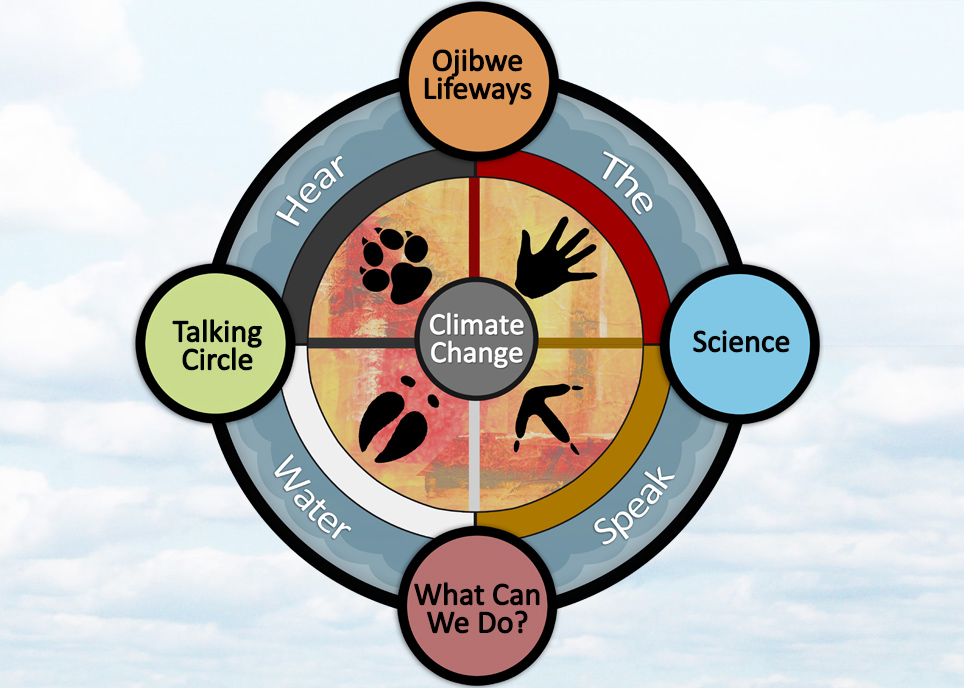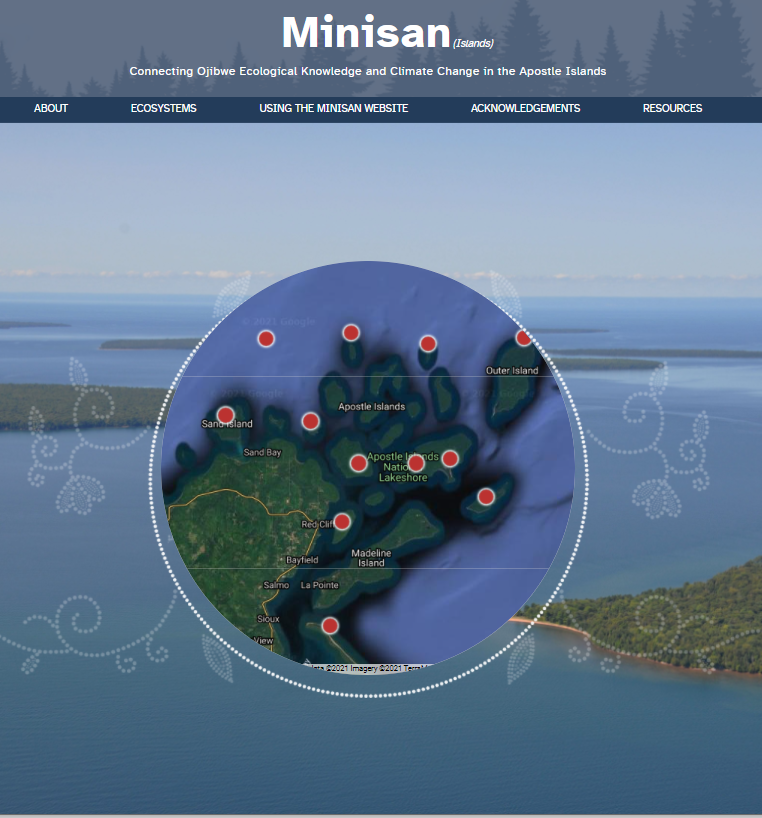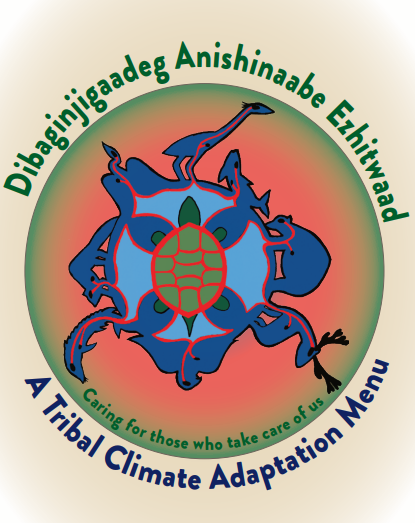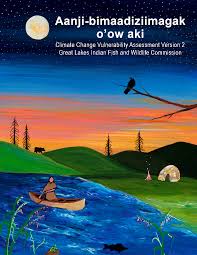Indigenous Knowledge for Climate Awareness
Indigenous knowledge, also known as Indigenous ways of knowing or Traditional Ecological Knowledge (TEK), is a philosophy and worldview that reflects the language and lifeways of Indigenous peoples (source: Great Lakes Indian Fish and Wildlife Commission). Indigenous knowledge offers long-term place-based qualitative knowledge of how Wisconsin’s climate is changing, and adaptation strategies that reflect indigenous values. Many knowledge holders generously contributed their time, wisdom, and creativity to the development of these resources.

“Gikinoo’wizhiwe Onji Waaban” (Guiding for Tomorrow in the Ojibwe language) integrates traditional ecological knowledge (TEK) of the Lake Superior Ojibwe people and place-based evidence of climate change we are observing in our communities, with “academic” climate research to build climate awareness and encourage action. Four seasonal units focus on how climate is affecting plant and animal beings that support Ojibwe lifeways. Activities and resources help learners reflect on how climate affects them and what they can do.

Minisan…Connecting Ojibwe Ecological Knowledge and Climate Change. The Minisan website offers a virtual exploration how climate change is affecting twelve ecosystems within Wenaboozhoo Minisaning (Lake Superior’s Apostle Islands). Indigenous knowledge of the Lake Superior Ojibwe people challenge perspectives on climate change and adaptation with academic climate science providing cross culture knowledge. The website design and resources reflect Ojibwe culture and language.

Ganawenindiwag (“they take care of each other” in the Ojibwe language) is a guide designed for use by coastal-land caretakers, homeowners, resource stewards, and anyone who interacts with shorelines of Gichigami (Lake Superior) and its connecting waterways. Ganawenindiwag, helps users make coordinated and informed plant selections for vulnerable coastal environments, while inviting readers to see the cultural relationships between people and plants that have long existed in this landscape. Ganawenindiwag was developed by a collaborative team including an advisory group of knowledge holders, the Reserve, GLIFWC, the Lake Superior Research Institute, and UW–Madison Division of Extension’s Natural Resources Institute.

Dibaginjigaadeg Anishinaabe Ezhitwaad (“caring for those who take care of us”)… A Tribal Climate Adaptation Menu provides a framework to integrate indigenous and traditional knowledge, culture, language, and history into the climate adaptation planning process.

Aanji bimaadiziimagak o’ow aki (“the world is changing”) weaves together Traditional and Scientific Ecological Knowledge and “academic science” to examine the climate change vulnerability of 60 plant and animals beings by the mid-21st century. The assessment is meant as a resource to help tribes and non-tribal users prepare for upcoming changes and take care of those who take care of us.




